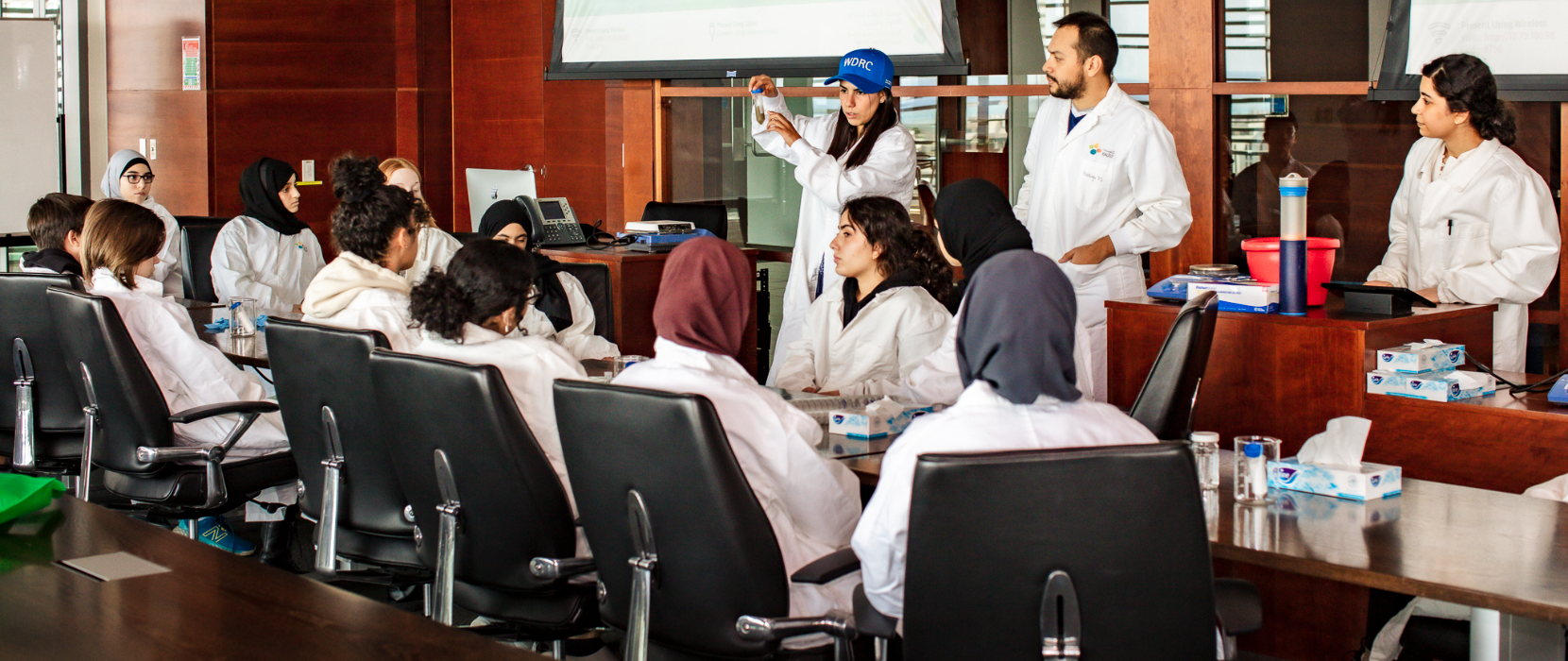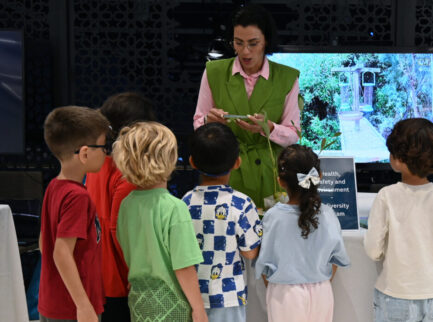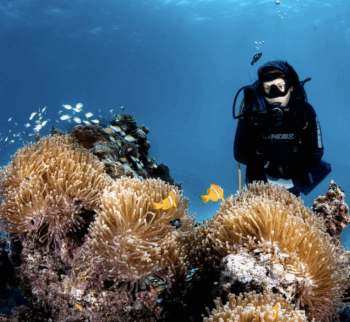The UN2023 Gamechanger Challenge, a worldwide competition for students aged 17 and older to develop solutions for global water challenges, is coming to a close. Over 200 student teams from around the world competed for the opportunity to present their innovative water-related ideas for a resilient future at the upcoming UN 2023 Water Conference in New York in March 2023. Two teams from KAUST were among the top 20 selected projects, targeting topics such as reducing water waste and wastewater treatment.
Teams whose ideas were selected during the first round received coaching from professionals within the industry to further develop their ideas. One of those teams was “Team KAUST”, consisting of four Ph.D. students from the Water Desalination and Reuse Center (WDRC) at KAUST. The team took the challenge out of the lab and into The KAUST School (TKS), collaborating with school students to create a prototype for collecting leftover water to irrigate the school’s Edible School Garden. The Ph.D. students organized a workshop with TKS students to expand their knowledge of filtration systems and develop prototypes and solutions for water-related challenges.
“Participating in the challenge was an amazing experience because we had the opportunity to build a bridge between PhD students and TKS students and teachers,” said Rodrigo Sandóval, a Ph.D. student at WDRC. “We learned from the TKS students that they are aware of environmental issues and have amazing ideas and motivation to make positive changes.”
“I would like to commend Team KAUST on their enthusiasm and the thought-provoking presentations and workshops they held for TKS’s Environmental Club students (EFFECT),” said Mary May, Sustainability Coordinator at TKS. “The students were challenged to think about what a resilient future means concerning water issues, and then to brainstorm innovative solutions. I hope these graduate students will continue this dynamic collaboration with the TKS EFFECT group,” she concluded.
Access to safe water, sanitation, and hygiene is the most basic human need for good health and well-being. The UN Sustainable Development Goal 6 aims to ensure the availability and sustainable management of water and sanitation for all. Billions of people worldwide lack access to safe water and sanitation, and this situation will only worsen if the world does not take on the targets set for SDG 6.
In Saudi Arabia, where safe drinking water is a valuable resource, the demand for water increases as the country grows. KAUST has been partnering with the Kingdom to ensure access to safe drinking water for consumption and agriculture while reducing water waste. The Kingdom produces the most desalinated water globally, and KAUST is working to make the production process more sustainable and energy-efficient by incorporating green energy sources like solar power and new technologies such as ultrathin polymer-based ordered membranes.
KAUST faculty have also recently partnered with The Saudi Authority for Industrial Cities and Technology Zones (MODON) to deploy a pilot wastewater treatment plant that is energy-neutral and decentralized, producing safe water for agricultural irrigation. For more information about KAUST’s contributions to SDG6, please see our SDG report.




